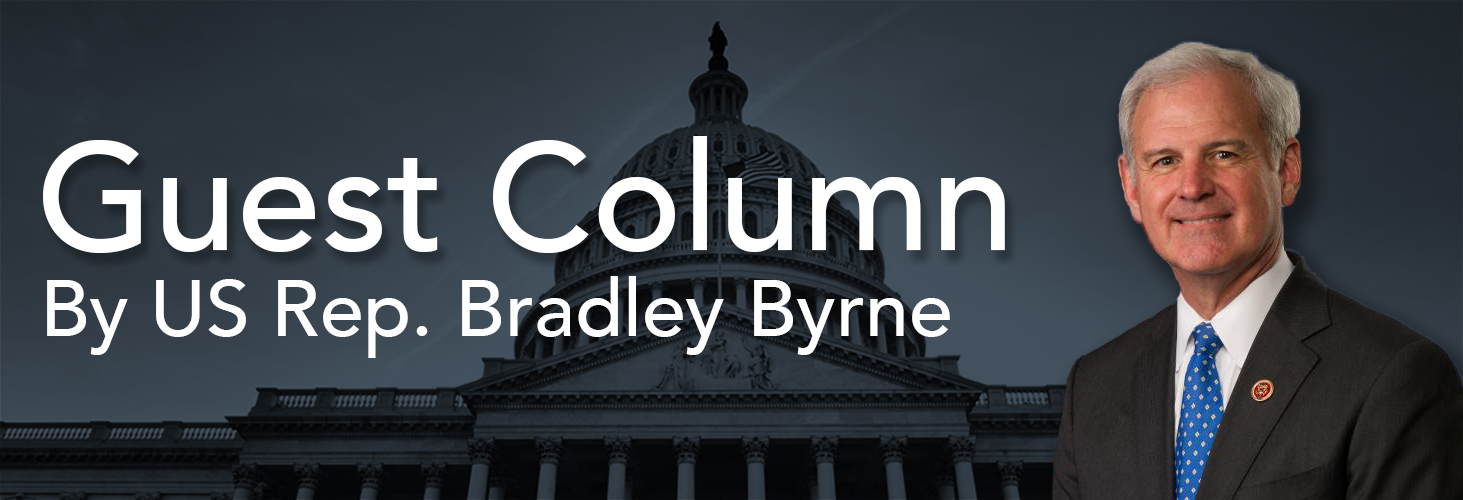By US Representative Bradley Byrne (AL-1)
Last week, many schools in Alabama were on Spring Break and people flocked to the Gulf Coast. Spring Break always serves as a preview of the crowds we will see once we get into the summer months. Whether it is a local restaurant in Atmore, a gas station in Monroeville, or a hotel in Gulf Shores, each of our communities benefit in some way from tourism.
That’s why it is so important that our coastal communities are not unnecessarily restricted by federal policies. I’ve worked hard to support our coastal economies, including my vote for legislation to reform the flood insurance program and joining the bipartisan Coastal Communities Caucus.
We’ve certainly made important progress, but we continue the fight continues for one of the biggest issues plaguing our coastal communities: a shortened Red Snapper season.
Now I know a shortened Red Snapper season isn’t just an issue that impacts tourism. In fact, many people all throughout Southwest Alabama enjoy taking advantage of our area’s immense natural resources. I talk to people all the time who like to fish in the Gulf, and they don’t understand why our Snapper season keeps getting shorter and shorter.
The answer is really simple: the federal government is failing to adequately account for the number of Red Snapper in the Gulf. Ask anyone who has been fishing in the Gulf recently, and they will tell you that Red Snapper are more plentiful than ever before.
Just as bad, the federal government is overestimating the number of Red Snapper caught each year. For example, last year the federal government estimated 1,041,000 pounds of Red Snapper were caught off the coast of Alabama while the Alabama Red Snapper Reporting system only estimated a catch of 418,000 pounds. That is a remarkable disparity.
The best example of the federal government’s flawed data focuses on the fact they don’t sample for Red Snapper on reefs. That is especially appalling since Red Snapper are reef fish. One local fisherman put it best when he said that not sampling for Red Snapper on reefs would be like not looking for deer in the woods. It just doesn’t make sense.
That’s why I introduced H.R. 981, the Red Snapper Regulatory Reform Act. This commonsense piece of legislation would give more control to Gulf States and provide real relief to our fishermen.
My bill does several important things. First, it would repeal the inflexible quotas that have resulted in our shorter Red Snapper seasons. Second, it would create jurisdictional parity by expanding state waters to nine nautical miles for all five Gulf States. Third, my bill would shift stock assessment and data collection from federal control and give those responsibilities to the Gulf States.
It is clear there is a better way to deal with our Red Snapper fishery. State level data and research conducted by public universities, like the University of South Alabama, continues to be more accurate than the flawed data coming from the federal bureaucrats in Washington.
My legislation has been co-sponsored by a number of my Congressional colleagues from Alabama and all across the Gulf Coast. I am especially pleased to report that my bill is co-sponsored by House Majority Whip Steve Scalise from Louisiana. It is clear there is strong support in Washington for fixing Red Snapper season.
Regardless of whether or not you go fishing, this issue should matter to all Americans. This is about freedom and federalism. It is about limiting the role of the federal government in areas where it doesn’t belong.
Most of all, this is about bringing real relief to our area fishermen and strengthening our coastal communities. That is one of my top priorities in Congress, and you can rest assured I won’t stop fighting for Southwest Alabama.











































